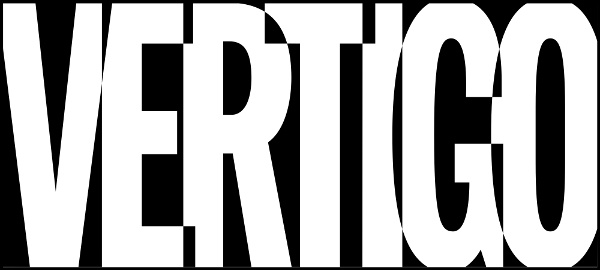Bond had ascended to the position in 2012 (see "New Management Team at Vertigo") after the departure of imprint founder Karen Berger (see "Karen Berger Leaving Vertigo"), who left in the management restructuring after DC Publisher Paul Levitz left the company. Bond had worked with Berger at Vertigo since 1993.
There are currently three editors at Vertigo, Jamie Rich, Ellie Pyle, and Molly Mahan, who are reporting to DC Co-Publishers Dan Didio and Jim Lee for now.
"We are extremely grateful for Shelly Bond’s commitment and dedication to Vertigo, its books and its incredibly talented team of staff and creators," DC’s statement said. "In Vertigo she leaves a legacy to which we remain committed and on which we intend to build for the future. She will always be a deeply valued and respected member of the DC family. We have the utmost confidence in the current editorial staff and look forward to the team leaving their mark on the Vertigo line knowing this new alignment creates a stronger organization that is well positioned for maximum potential."
Bond was one of two female vice presidents in DC’s editorial management, leaving Bobbie Chase, VP-Talent Development, as the only remaining woman at that level. DC also has two female Group Editors, Marie Javins and Kristy Quinn.
The rationale for the Vertigo restructuring was described in DC’s statement as “to keep competitive and stay relevant in the changing marketplace, and to set the business up for future success.” Vertigo has struggled in recent years, with Image surging and Vertigo in decline as the place where creators take high profile new projects. Repeated efforts to revive the imprint have been largely unsuccessful, most recently the launch of 12 new titles in Q4 of 2015 (see "Vertigo Announces 12 New Titles").
We took a look at North American sales on those 12 titles in periodical format, and two of them, Gilbert Hernandez and Darwyn Cooke’s Twilight Children and TV tie-in Lucifer, did reasonably well, with sales over 10,000 on the most recent issues in ICv2’s Top 300 charts. But the rest were tanking, with Clean Room the best seller of the lot in March at 6,832 copies (see "Top 300 Comics Actual – March 2016") and the remaining titles all below 5,200, and we suspect that some of the titles did not appear on the chart because sales were below the #300 rank, which had sales of around 4,200 in March. New Romancer, for example, had sales under 4,000 on the February chart (see "Top 300 Comics Actual – February 2016").
But whether periodical sales even matter for Vertigo titles is arguable. Graphic novels is where Vertigo has made hay for the last two decades, and that remains the case today, with two Vertigo franchises, Sandman and Fables, on ICv2’s Top 10 Author Graphic Novel Franchises for Fall 2015 (see "Top 10 Author GN Franchises – Fall 2015"). None of this new raft of titles has reached the graphic novel format yet, and it would not surprise us to see some of this most recent group of 12 titles do well in that format.
And even if Vertigo sales on newer titles end up being uninspiring across formats, it’s not clear that the person running the imprint for DC can do much about it because the Vertigo deal for creators is not as good as it was when some of the imprint’s biggest hits were acquired. Entertainment attorney and 1First Comics co-founder Ken Levin told ICv2 last summer that the Vertigo deal had changed in recent years (see "ICv2 Interview: 1First Co-Founder Ken F. Levin, Part 2"). "The Vertigo deal used to be a true creator-owned deal with Warner Brothers having a first negotiation right and a right to match, but there was some open market aspect about it," Levin said. "The deal they changed to after Karen Berger left gives them 100% control. It’s really not a creator-owned deal. It gives you smaller economic passive interest so for the creators on the level I work with, it wasn’t a deal that was going to work for them."
News of Bond’s departure immediately bought a flood of laudatory posts on social media from creators she’d worked with, with some particularly notable.
Neil Gaiman: "I've worked with @sxbond since 1992, and there is nobody like her out there, for care, for attention to detail, for love of what she edits."
Bill Willingham: "I won't comment much about @sxbond leaving Vertigo. Too soon to organize cogent thoughts. But I will say this much. I owe her my career."
Becky Cloonan: "thank you to @sxbond, who helped change my career, gave me my first paying gig, and pushed my art farther than I thought it could go!"
Paul Dini: "I owe so many thanks to @sxbond, from the playfulness of Zatanna: Everyday Magic to encouraging me to undertake Dark Night. You are the best."
We’ll report further news on the ongoing Vertigo restructuring as it becomes available.




